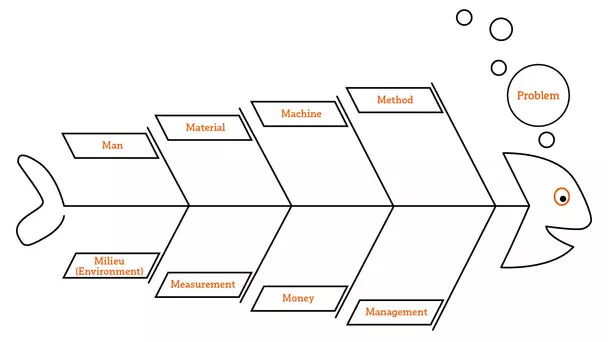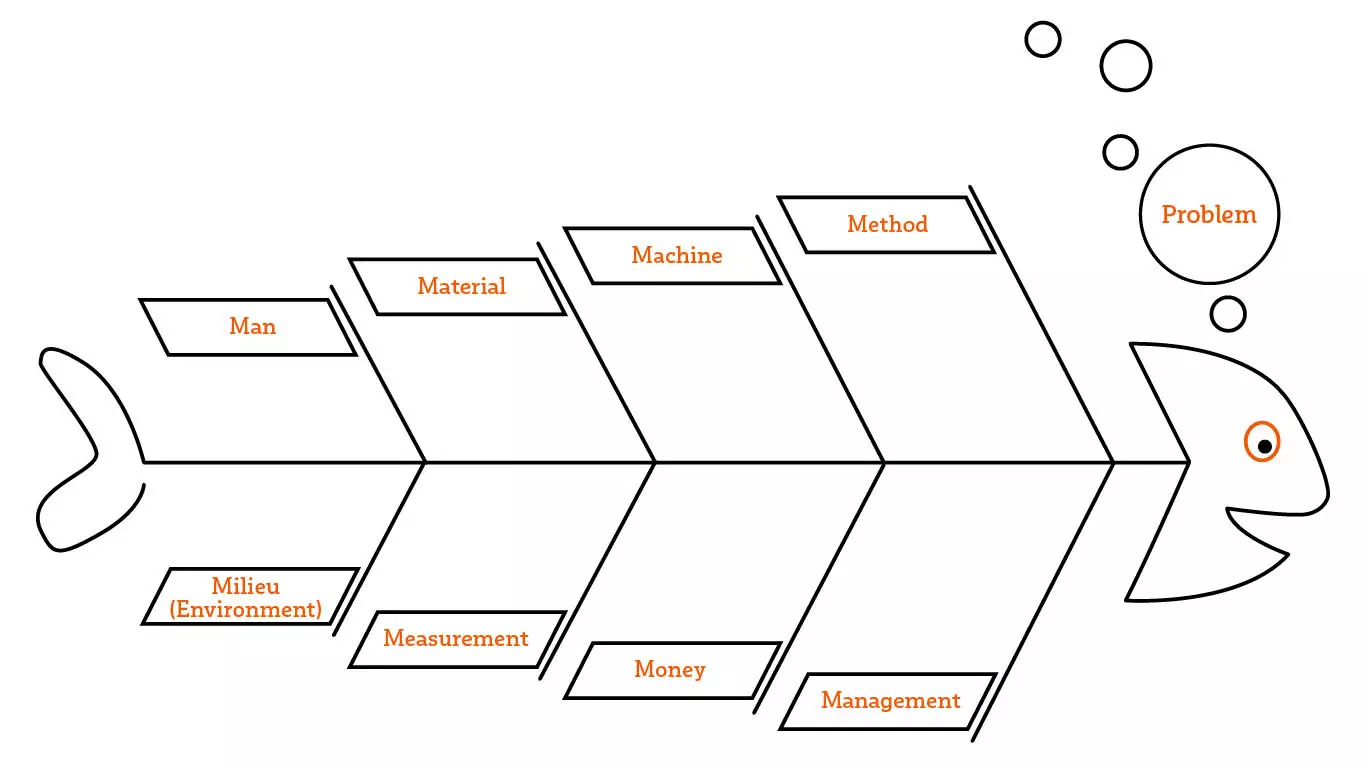Kaoru Ishikawa (1915 – 1989) was a Japanese chemist. During his professional career, he taught at the University of Tokyo, among other places, was a member of the Japanese Union of Scientists and Engineers from 1949 and worked in its research group for quality assurance. In Japan, Ishikawa is regarded as a pioneer in the field of quality: the end of World War II and the destroyed industry led to a quality offensive in the 1950s, in which Ishikawa played a major role, building on the work of William Edwards Deming, Joseph M. Juran and Armand V. Feigenbaum.
He developed an employee-oriented concept for cross-divisional quality work – the concept of Company-Wide Quality Control (CWQC). This is based on the idea of Total Quality Management (TQM). A key element of the concept is therefore the quality circle, in which a group of employees works on the quality management of a company in a focused manner. Ishikawa gave this quality circle a toolbox for quality management – it still contains the Ishikawa diagram today.







Comments
No comments